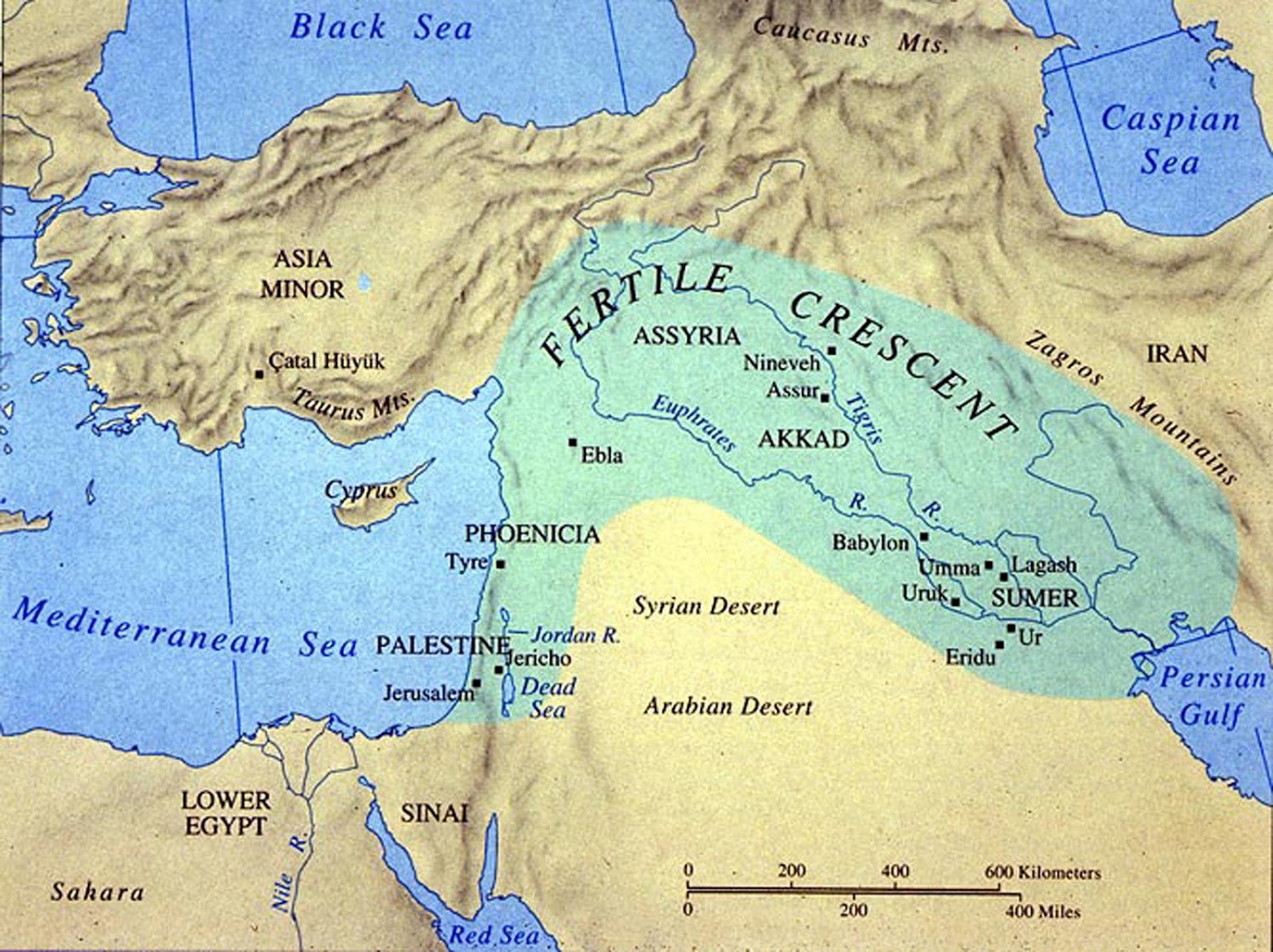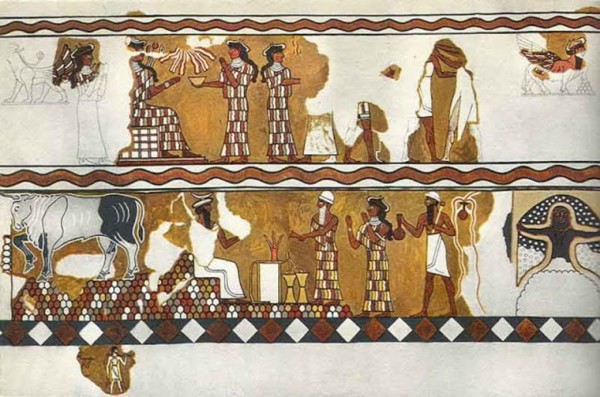
Between the rivers Tigris and Euphrates lies a broad, fertile valley that has a better claim than anywhere else on earth to be regarded as the birth place of civilization. In the southern part of this long valley, an energetic and inventive people known as the Sumerians began to build the worlds first cities more than 5000 years ago. They invented a system of writing and discovered bronze; and they are the first people known to have used wheeled vehicles. With the new-found strength of large-scale organization, and the precious waters of the two rivers to fight over, the Sumerians also waged the world’s first wars, as distinct from tribal skirmishes. The area settled by the Sumerians was known to the Greeks as Mesopotamia, ‘the land between the two rivers’. [1]
The term “Sumerian” is the common name given to the ancient non-Semitic inhabitants of Mesopotamia, Sumer, by the Semitic Akkadians. The Sumerians referred to themselves as ùĝ saĝ gíg-ga, phonetically uŋ saŋ giga, literally meaning “the black-headed people”. [2]
According to secular history, the land of Shinar/Mesopotamia was the birth place of civilization by a non-Semitic “black-headed people”. The Bible is a history book and it informs us of who these black Sumerians were. They were Hamitic (Africans). The “black headed people” that built the first civilization were the Cushites. Cush means Black and it is another name for Ethiopia. The word Ethiopia comes from the Greek word “Athiop” which means “Black” or “Burnt Face”.
The birthplace of civilization was also where the first kingdom in history took place. This kingdom was presided by Nimrod as recorded in the Bible:
Genesis 10
King James Version (KJV)
6 And the sons of Ham; Cush, and Mizraim, and Phut, and Canaan.
8 And Cush begat Nimrod: he began to be a mighty one in the earth.
9 He was a mighty hunter before the Lord: wherefore it is said, Even as Nimrod the mighty hunter before the Lord.
10 And the beginning of his kingdom was Babel, and Erech, and Accad, and Calneh, in the LAND of SHINAR.
11 Out of that land went forth Asshur, and builded Nineveh, and the city Rehoboth, and Calah,
12 And Resen between Nineveh and Calah: the same is a great city.
The people who resided in the lower part of the Tigris-Euphrates valley were Ethiopian, black in complexion. We read in Genesis 10:8 that “Cush begat Nimrod;…”. The word Cush means Ethiopia, and Cush was the father of the Ethiopians. For the meaning of the word Cush, see Webster’s New Collegiate Dictionary. Nimrod was a mighty Ethiopian conqueor and builder in the land of Shinar. We find in Genesis 10:8-10, that Nimrod ruled over such cities as Babylon, Erech, Accad (or Akkad); all these cities are situated in the land of Shinar. Another name for Shinar is Sumer. The civilization was of high order, and one of the oldest civilizations in ancient times. [3]

References
1) Reader’s Digest, The Last Two Million Years, p.50
2) W. Hallo, W. Simpson (1971). The Ancient Near East. New York: Harcourt, Brace, Jovanovich. p. 28.
3) R. Windsor (1969), From Babylon To Timbuktu, p.15
More Stories
PANDEMIC UPDATE: ISRAEL, THE CHURCH OF JESUS!
The Mark of The Beast
Pope prepares for Mark of the Beast with consideration of ‘universal basic wage’